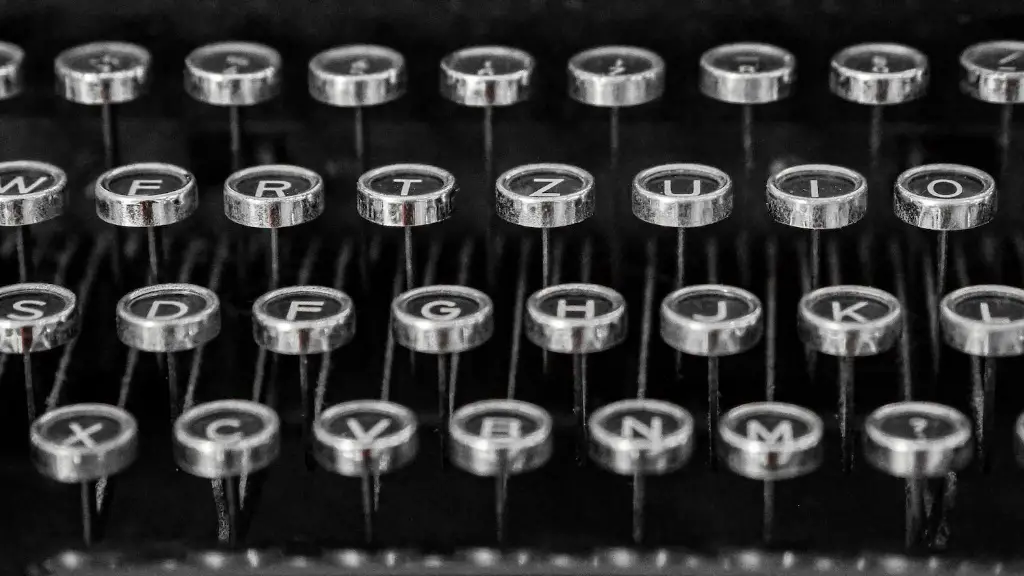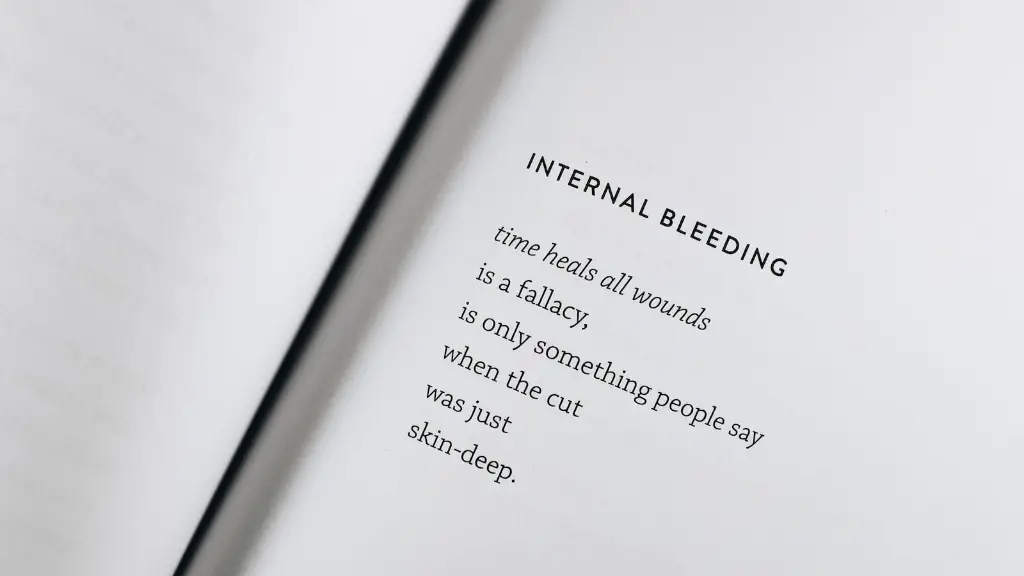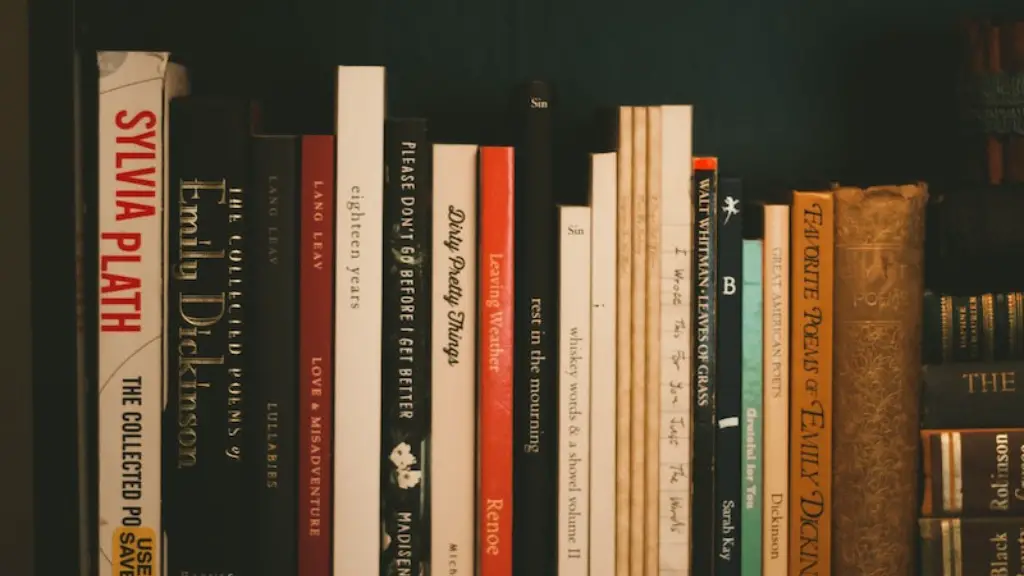Poetry & Poets
Explore the beauty of poetry – discover the poet within

How To Structure A Poetry Essay

Writing a poetry essay can be a challenging and more involved task than writing an essay on any other topic. It requires an in-depth knowledge of the form and an understanding of the language, images and symbols that create the poem’s meaning. To begin, let’s define what a poetry essay is – it is a type of essay that requires the writer to explore a subject in an analytical and creative way in order to make conclusions about it. In this article, we will cover some essential points to help you structure a poetry essay including identifying the primary subject of the poem, understanding the language used in the poem, and analysing the poem’s themes and images.
Identifying the Primary Subject of the Poem
The first step in structuring a poetry essay is to identify the primary subject of the poem. In order to do this, you must first read the poem and understand the overall meaning. Themes, symbols and images are all elements that should be considered when reading a poem. Once you have read the poem and identified the primary subject, you should then move on to the task of analysing the poem.
Understanding the Language Used in the Poem
The language and structure used in a poem can affect its meaning. It is important to look at the way words are used, the structure of the poem, imagery and sound. Understanding the language can help you to better interpret the poem and make conclusions about the primary subject.
Analysing the Poem’s Themes and Images
In order to draw conclusions about the poem, it is important to analyse the themes and images used in the poem. Does the poem explore a specific emotion or convey a certain message? What symbols are used to represent this emotion or message? These are all important questions to consider when structuring a poetry essay.
Tone and Style

When structuring a poetry essay, it is also important to consider the tone and style of the poem. What kind of tone does the poem have? Is it a humorous piece or a serious one? Considering the style can help to add depth to the analysis of the poem.
Exploring Metaphors and Similes
When analysing a poem, it can be useful to explore the metaphors and similes used. Metaphors and similes can be used to compare one thing to another in order to emphasize a point or draw a comparison. Exploring these comparisons can help you to draw conclusions about the poem.
Analyzing How the Poem Is Structured
The structure of the poem can help to understand its meaning. Does the poem have a rhyme scheme or is it written in a more free-verse style? Are there repeated lines or themes throughout the poem that can help to further explore its meaning? Analysing the poem’s structure can help to uncover some of its hidden meanings.
The Power of Imagery
Imagery is an important element in poetry that can help to make the poem more vivid and exciting. When analysing a poem, it can be beneficial to think about how the imagery is used to convey a certain emotion or meaning. Is the imagery figurative or literal? Exploring the imagery can help to uncover some of the poem’s deeper meanings.
The Role of Literary Devices

When structuring a poetry essay, it is important to consider how literary devices are used in the poem. Does the poem make use of personification or alliteration to convey a certain emotion or message? Considering how the poet has deployed these devices can help to further explore the poem’s meaning.

The Use of Symbols
Symbols are often used in poetry to convey a certain meaning or emotion. When analysing a poem, it can be useful to think about how symbols are used to convey a certain message. Are the symbols literal or figurative? What is the significance of the symbols? Exploring the symbols can help to make conclusions about the poem.
Approaching the Poem from a Theoretical Perspective
When constructing a poetry essay, it is beneficial to consider the poem from a theoretical perspective. What is the poem’s historical and cultural context? What perspectives from experts can be used to interpret the poem? Examining the poem from this perspective can help to uncover some of its hidden meanings.
The Role of Metaphor in Poetry
Metaphor is an important component of poetry that can be used to convey meaning, convey emotion, and give the reader an abstraction of the experience being described in the poem. When analysing a poem, it can be useful to think about how metaphor is used to convey a certain emotion or message. What metaphors are used in the poem? What is the significance of the metaphors? Exploring these questions can help to draw conclusions about the poem.
Examining Different Genres and Forms

When structuring a poetry essay, it can be useful to examine the different genres and forms of the poem. Does the poem follow a traditional form or is it written in a more modern style? Examining the genre and form of the poem can help to uncover some of its deeper meanings.
The Power of Structure
The structure of a poem can have a great impact on its meaning. Does the poem follow a traditional form or does it have a unique structure? What is the significance of the structure? Analysing the poem’s structure can help to uncover some of its deeper meanings.
Exploring the Allusions Made in the Poem
Allusions are often used in poetry to add layers of meaning to the poem. When constructing a poetry essay, it can be beneficial to think about how allusions are used in the poem. What allusions are used and what is the significance of these allusions? Exploring these questions can help to draw conclusions about the poem.
Considering Mood and Tone
When structuring a poetry essay, it can be useful to consider the mood and tone of the poem. What mood and tone are established by the words, images and symbols used in the poem? Examining the mood and tone of the poem can help to draw conclusions about the poem.

Minnie Walters
Minnie Walters is a passionate writer and lover of poetry. She has a deep knowledge and appreciation for the work of famous poets such as William Wordsworth, Emily Dickinson, Robert Frost, and many more. She hopes you will also fall in love with poetry!
Leave a Comment Cancel reply

IMAGES
VIDEO
COMMENTS
Identifying the Primary Subject of the Poem. The first step in structuring a poetry essay is to identify the primary subject of the poem. In order to do this, you must first read the poem and understand the overall meaning. Themes, symbols and images are all elements that should be considered when reading a poem.